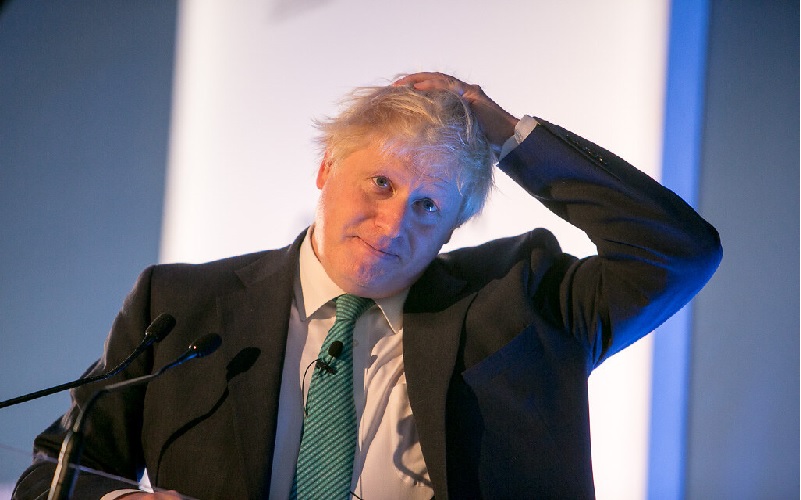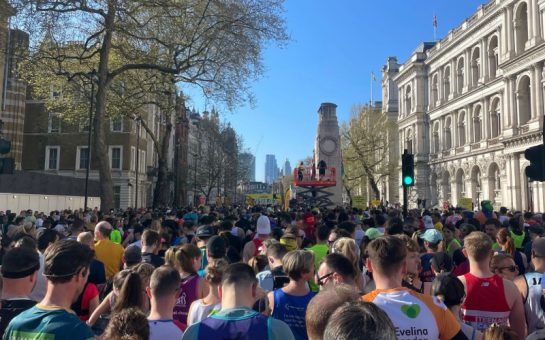Boris Johnson’s career history provides a unique insight into his rise, and fall, from the highest office in the country. South West Londoner takes a look at the PM’s previous professions and the lead up to his ascension to office in 2019.
The eyes of the world were focused on 10 Downing Street yesterday as Boris Johnson stood at the lectern and announced his resignation, following a year marred by controversies and allegations which have tarnished not only his premiership but the Conservative Party itself.
What the future of Johnson’s career will look like is, at the moment, uncertain.
But if his previous job history is anything to go by, Johnson’s resignation from the highest office in the country will not be his last position in the public eye.
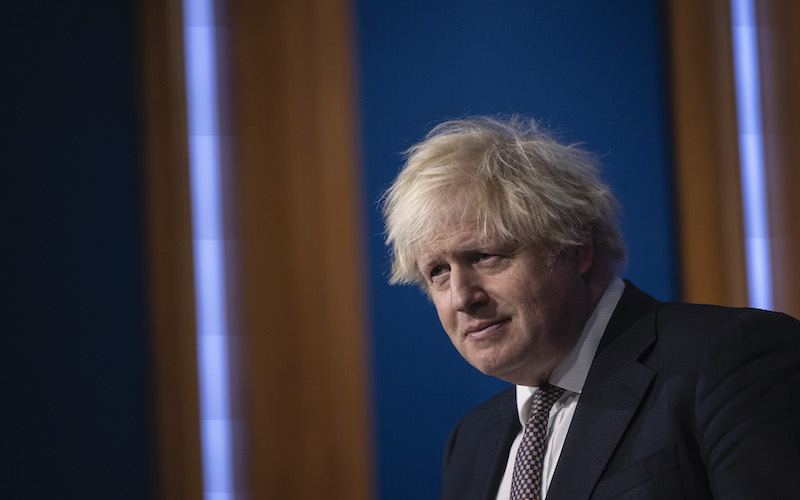
Early career
The foundation of Johnson’s adult life began when he won a scholarship to read Literae Humaniores at Balliol College, Oxford.
After four years of study, he graduated in 1987, amongst a generation of undergraduates who would later come to dominate British politics: including David Cameron, William Hague, Michael Gove and Jeremy Hunt.
He began his journalism career as a graduate trainee at The Times the same year, but was dismissed after including a falsely attributed quote in an article.
He then joined The Daily Telegraph, and in 1989 was appointed Brussels correspondent, a position he held for five years.
During this post, Johnson established himself as a Eurosceptic journalist and began generating criticism for some of his more controversial pieces, such as opposing the ban on handguns introduced after the Dunblane shooting.
Johnson later applied to become a war reporter for The Daily Telegraph, but was instead given the position of assistant editor and chief political columnist.
He later won the Commentator of the Year award for his pieces, which contained controversial language such as ‘piccaninnies’ and ‘tank-topped bumboys’ for which he would later be criticised during his political career.
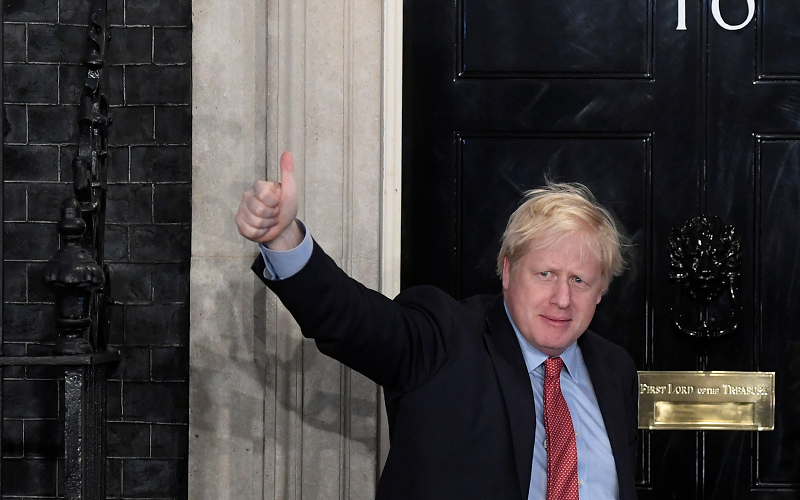
Credit: Number 10 Flickr
Humble beginnings
Contemplating a career in politics, Johnson attempted to stand as a Conservative candidate to become an MEP in the 1994 European Parliamentary Elections, but failed to find a constituency.
This was followed by an unsuccessful campaign for election as an MP in Clwyd South in Wales, after being rejected as a Conservative candidate for Holborn and St Pancras.
Johnson’s first major public scandal came in 1995, when a recording of a private telephone conversation between Johnson and his friend Darius Guppy was published.
In the recording, Guppy asked Johnson to provide the address of a journalist who was investigating him for insurance fraud so that he could be beaten: “a couple of black eyes and a cracked rib or something like that”.
Johnson was heard agreeing to supply the information, and expressed worry that he might later be linked to the attack.
He was not dismissed from his role at The Daily Telegraph in the wake of the scandal, and instead was given a regular column in The Spectator, its sister publication, before rising to editor in 1999.
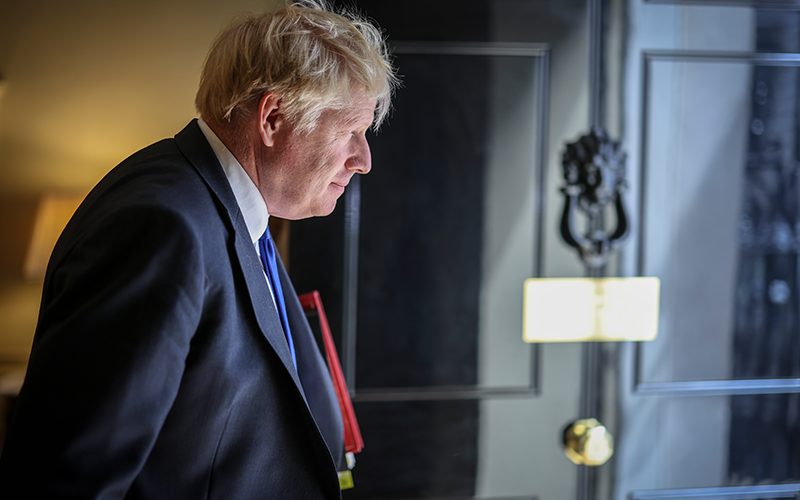
Political career
In 2001, Johnson won a 8,500 vote majority to become the Conservative MP for Henley in Oxfordshire.
Johnson remained editor of The Spectator at this time, and also continued to write columns for both The Daily Telegraph and GQ.
In 2003 Johnson was appointed vice-chairman of the Conservative Party and later shadow arts minister.
However, following allegations that were later proven true that he was having an affair with a Spectator columnist, Johnson was dismissed from both roles after refusing to resign.
In the 2005 general election, Johnson increased his majority and was re-elected as MP for Henley, and was later appointed as the shadow higher education minister under the Labour-majority government.
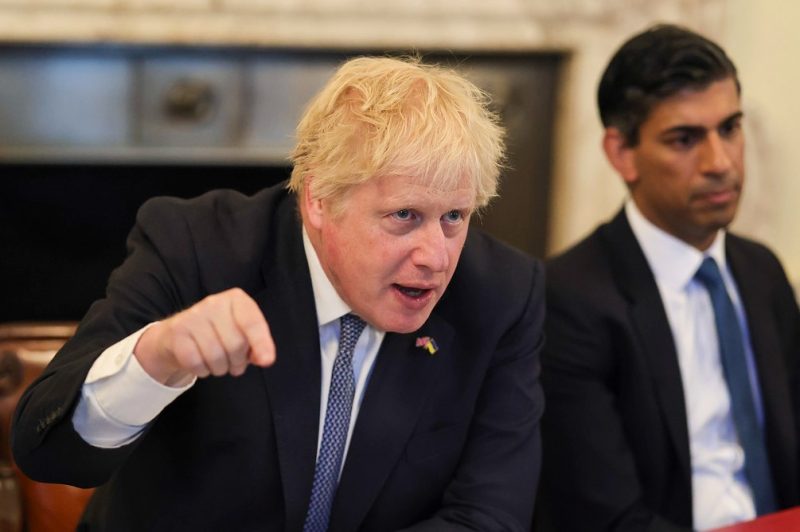
Mayor of London
But his major political break came in 2007, when he was selected as the Conservative candidate for Mayor of London after receiving 79% of the vote in a London public primary.
His campaign aimed to target youth crime and make public transport safer, and in 2008 he was elected after second-preference vote tallies gave him 53% of the vote.
His first term was characterised by several personal scandals, including holidaying with his family during the London Riots, and a now infamous interview with the BBC where he referred to his £250,000 Daily Telegraph salary as “chicken feed”.
Despite such controversy, Johnson remained a popular public figure during his first term as London Mayor, introducing policies such as the public ‘Boris Bikes’ scheme and supporting the London Living Wage.
After his re-election, Johnson oversaw the 2012 London Olympics and in 2013 extended the operation of the London Underground to run through the night at weekends.
Both policies served to improve his popularity amongst voters across the political spectrum.
Despite this, Johnson chose not to run for re-election and stood down as Mayor of London in 2016, being replaced by Sadiq Khan.
He continued to play a key role in Conservative politics, rejoining the House of Commons as MP for Uxbridge and South Ruislip in 2015.
Brexit and Conservative Leadership contest
Following his stint as London Mayor, Johnson was a staunch supporter of the Leave campaign during the Brexit referendum, and after David Cameron resigned as prime minister, served as Foreign Secretary under Theresa May’s premiership.
Johnson’s appointment as Foreign Secretary was criticised in the media because of his historic controversial statements about other countries, an issue which many thought was likely to cause tension during state visits abroad.
Political commentators at the time saw it as an attempt by May to block him from mobilising backbenchers against her, and as a form of punishment for the problems caused by the referendum.
After resigning as Secretary of State in 2018 over disagreements about the Brexit agreement, Johnson stood in the Conservative Party Leadership contest in 2019 following May’s resignation.
He won 66% of the vote, beating opponent Jeremy Hunt by almost double the mandate.
On 7 July, Johnson announced his resignation as Leader of the Conservative Party, marking the beginning of the end of his just over 1,000 day leadership.
For more news on Johnson’s resignation, click here.
Featured image credit: Chatham House via Wikimedia Commons under CC BY 2.0 license
